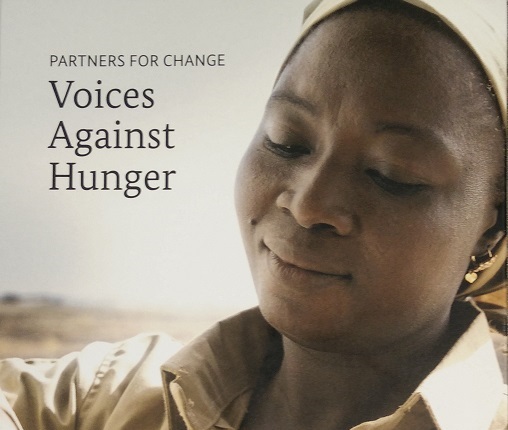Ending hunger and malnutrition by 2030 is a key Sustainable Development Goal agreed by the international community in 2015. In a book published last week by the German Federal Ministry for Economic Cooperation and Development (BMZ), leading anti-hunger advocates share their thoughts on how to achieve that Goal. Biofortification features among the solutions.
Dr. Akinwumi Adesina, the President of the African Development Bank, is a leading voice for the structural transformation of African agriculture as the springboard for the continent’s economic development. In the BMZ publication titled Voices Against Hunger, Adesina advocates expanding the target and reach of biofortification:
“To boost access to micronutrients for healthy living, biofortification should be strongly promoted across the whole food chain; and not just for the poor. This will require addressing demand-side constraints and promoting policies that encourage the private sector to incorporate these nutritious crops in processed foods.”
Adesina has been a champion of biofortification for years. During his tenure as Nigeria’s Minister of Agriculture and Rural Development, he formally launched nationwide dissemination of vitamin A cassava as part of the federal government’s Agricultural Transformation Agenda. In a rousing keynote address at the Second Global Conference on Biofortification in Kigali, Rwanda, Adesina called for scaling up the delivery of biofortified crops in Nigeria and the continent.
Voices Against Hunger features another champion of biofortification, Melinda Gates, who highlights the pivotal roles that women play in nutrition and agriculture. Gates, a co-founder of the Bill & Melinda Gates Foundation, underscores the imperative for women-centered strategies in the fight against hunger and malnutrition:
“What is beyond doubt…is that we cannot hope to make good on the promise captured by the second Sustainable Development Goal – End hunger, achieve food security and improved nutrition, and promote sustainable agriculture – without empowering women…as caregivers, decision-makers, and producers.”
Drawing on research data and human interest stories, Gates demonstrates the link between empowering women and lifting families and communities out of food and nutrition insecurity. She highlights the story of a Rwandan farmer who adopted biofortified beans.
“Gloria Uwizeyimana, a mother of two from Rwanda, had a similar experience. Like Sorubali, she struggled to produce enough high quality food for her family. That was until she took part in a pioneering program run by HarvestPlus. It allows farmers to exchange ordinary seeds for more nutritious ones – for free. Gloria now farms high-yielding, iron-enriched beans that mean she can feed her family nutritious meals – and still have plenty left over to sell. This income helps pay her family’s annual health insurance bill, and allows her to contribute weekly to a women’s savings association in her village.”
Voices Against Hunger features contributions from other leading voices in the food and nutrition field: Dr. Gerd Müller (German Federal Minister for Economic Cooperation and Development); Prof. Joachim von Braun (Director of the Center for Development Research, Bonn University); Bärbel Dieckmann (President of the German NGO Welthungerhilfe); Dr. Agnes Kalibata (President of the Alliance for a Green Revolution in Africa, AGRA); and Dr. Kanayo Nwanze (former President of the International Fund for Agricultural Development, IFAD).
